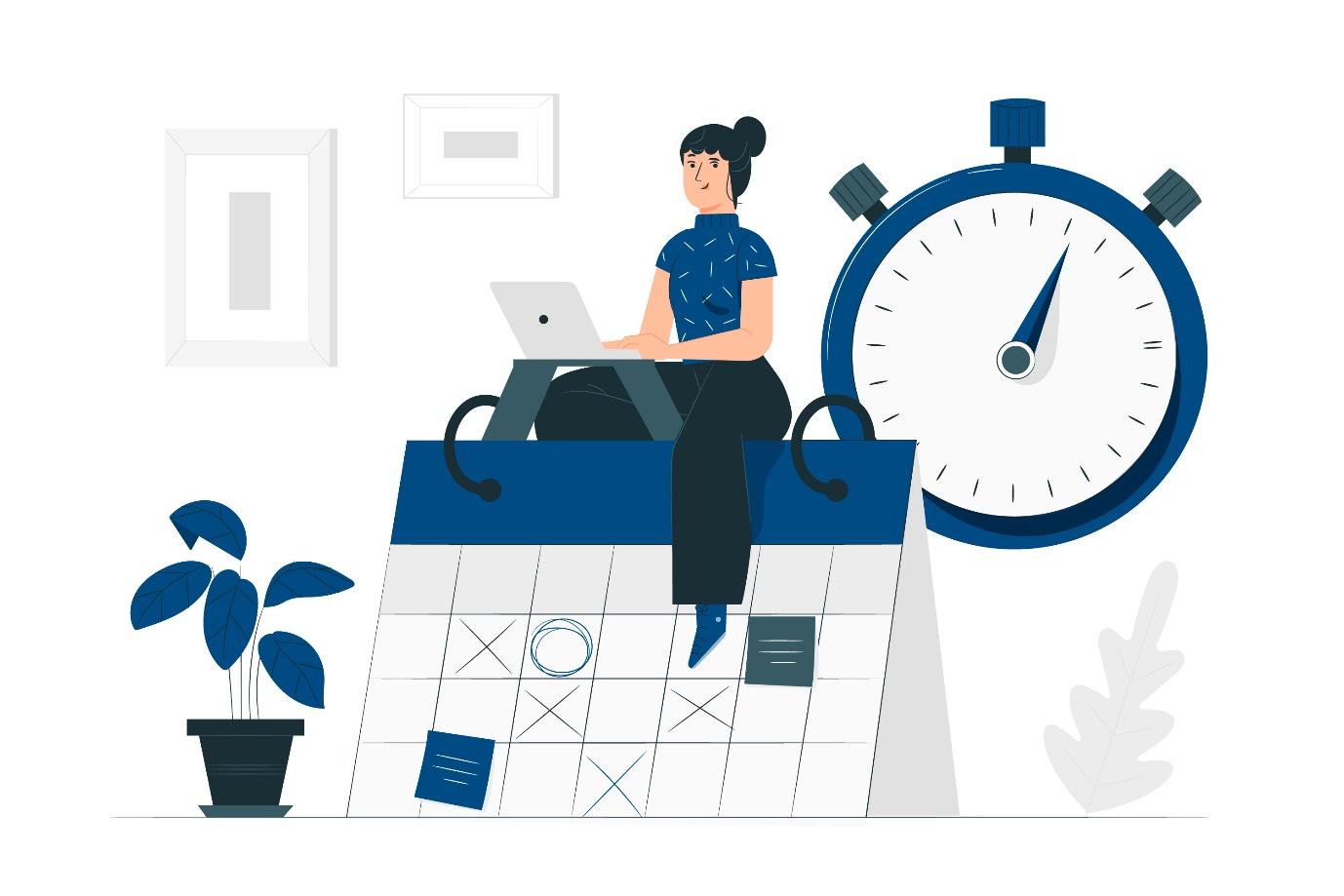
Hey there, fellow professionals navigating the evolving workplace! Feeling a twinge of anxiety about the Future of Work and the rise of automation? Worried your spreadsheet skills might be overshadowed by an algorithm in a shiny chrome casing? Oh gosh!
Hold on to your coffee mugs, because the truth about AI and the future of techs is far more fascinating than a sci-fi movie plot. Instead of dystopian cyborg takeovers, we’re on the cusp of an exciting transformation – one where human ingenuity and technology collide to create opportunities we can barely imagine.
So, dust off your curiosity caps, brew some fresh ideas, and let’s dive into the exciting landscape of work in 2024.
Don’t worry, it’s not all black leather and glowing red eyes – we’re in for a journey filled with innovation, collaboration, and yes, maybe even a sprinkle of (friendly) competition!
The Rise of the Machines: How AI is Transforming the Workplace
While science fiction has long entertained us with visions of robotic takeover, the landscape of work in 2024 paints a more nuanced picture.
Artificial intelligence (AI) is no longer confined to the silver screen; it is pervasively reshaping the professional landscape, automating tasks, and fundamentally altering our working lives.
From bustling assembly lines to intricate data analysis, Artificial Intelligence (AI) influence stretches across a vast spectrum of occupations, prompting a critical question: Is AI poised to usurp your every job?
The answer, as with most transformative technologies, is multifaceted. The susceptibility of specific roles to AI integration varies considerably. Let us delve into some of the occupations most likely to face AI-induced disruption.
This introduction avoids overly dramatic language (“machines rising”) and adopts a more professional tone (“reshaping the landscape”). It also strengthens the central question with impactful phrasing (“usurp”).
Finally, it sets the stage for a deeper exploration by highlighting the nuanced nature of AI’s impact.
Are You Next? Jobs Most at Risk of AI Takeover
The rapid advancement of artificial intelligence (AI) raises a crucial question: which optimized work-from-home ideas are most at risk of automation? While complete human displacement is unlikely, certain roles face significant vulnerability due to their task characteristics.
Here’s an evaluation of five categories highly susceptible to AI takeover:
1. Data Entry and Processing:
Repetitive, rule-based tasks like data entry, form processing, and data mining are prime candidates for automation. AI algorithms excel at handling large datasets with accuracy and speed, potentially rendering human data entry clerks obsolete in many sectors.
2. Manufacturing and Assembly Lines:
Robotics and automation are already transforming manufacturing. Once human-dominated assembly lines are increasingly employing sophisticated robots capable of complex tasks with greater precision and efficiency. This shift poses a significant risk to jobs in traditional manufacturing settings.
3. Customer Service and Telemarketing:
Simple, routine customer service inquiries and interactions are increasingly handled by virtual assistants and chatbots powered by AI. These virtual agents can answer FAQs, address basic issues, and even process orders, potentially reducing the need for human customer service representatives for repetitive tasks.
4. Transportation and Logistics:

Image source by Pixabay
While still in development, self-driving vehicles have the potential to revolutionize transportation, impacting millions of jobs. If driverless cars and trucks become widespread, the roles of taxi drivers, truck drivers, and delivery personnel could face significant disruption.
5. Accounting and Bookkeeping:
Tasks like data entry (which we have mentioned earlier in this list), record-keeping, and basic financial analysis are highly susceptible to automation.
AI software can handle large volumes of financial transactions, generate accurate reports, and even automate routine tax filing, potentially reducing the need for human accountants and bookkeepers for specific tasks.
So it’s important to note that AI will likely augment, rather than replace, many of these online or freelance jobs.
Humans will be needed for higher-level tasks requiring creativity, critical thinking, and emotional intelligence. The key lies in adapting skill sets and acquiring new expertise to remain relevant in the evolving job landscape.
This evaluation provides a starting point for ongoing discussions about the impact of AI on the workforce. By understanding the vulnerability of different occupations, we can better prepare for the future and ensure a smoother transition to an AI-integrated economy.
Not All Doom and Gloom: Jobs That Are Safe from AI
While some headlines predict an AI apocalypse for repetitive tasks, human skills like these are thriving:
Emotional Intelligence and Empathy: The delicate dance of human interaction isn’t something an algorithm can waltz to. No doubt about this! Your ability to connect, understand, and inspire will keep you ahead of the robot curve.
Creativity and Innovation: From brainstorming new ad campaigns to designing mind-blowing bridges, AI struggles to be more productive with the spark of human ingenuity. Your ability to think outside the box will always be irreplaceable.
Critical Thinking and Problem-Solving: Facing unforeseen challenges and crafting unique solutions is what humans do best. AI might crunch the numbers, but it’s you who will navigate the messy, beautiful realities of everyday work.
Leadership and Communication: Guiding teams, motivating individuals, and articulating complex ideas – these are the hallmarks of human leadership. No robot can replicate the power of a well-delivered pep talk or a truly inspiring vision.
Future-Proofing Your Career: How to Adapt to the AI Revolution
So, how do you embrace the robot revolution instead of fearing it? Here’s your survival kit:
- Become a lifelong learner: Embrace new skills like coding, data analysis, and digital marketing. These will help you work alongside AI, not against it.
- Become an AI champion: Don’t see AI as a threat, see it as a tool. Learn how to use Open AI ChatGpt to amplify your skills and boost your productivity.
- Focus on collaboration: The future workplace is about humans and machines working together. Hone your teamwork skills and become the bridge between AI and human expertise.
- Sharpen your soft skills: Empathy, communication, and emotional intelligence are your superpowers. Invest in developing these and you’ll be the irreplaceable human element in any team.
Remember, the future of work is about humans and machines partnering, not competing.
Think of AI as your supercharged assistant, freeing you to focus on what makes you truly human: creativity, empathy, and the ability to solve problems in ways no algorithm ever could.
So, ditch the cardboard fortress and grab your robot high-five – the future of work is looking bright, and we’re all in it together.
Conclusion: Embrace the Change, Don’t Fear It
To recap, the future of work won’t be about competition with machines, it will be about harnessing their capabilities to augment our own. New roles will emerge, requiring skills in managing, interpreting, and working alongside AI.
Upskilling and lifelong learning will become crucial as we navigate this evolving landscape.
Embrace the AI wave not as a threat, but as an opportunity. See it as a collaborator, a tool to amplify your impact and pave the way for a future where we work smarter, not harder, and focus on what makes us truly human: connection, meaning, and the joy of creation.
Remember, AI isn’t replacing us, it’s redefining what it means to be productive and fulfilled in the workplace. The future of work isn’t one of displacement but of partnership, evolution, and reinvention.
So, step into your 2024 workplace with curiosity, adaptability, and an open mind. The future of work belongs to those who learn to dance with the machines.
Author Bio

Robel Birhanu is a leading figure in the digital marketing landscape, leveraging his expertise to not only drive business success but also advocate for inclusivity and accessibility within the online sphere.
As the founder of Online Money Spinner, Robel has established himself as a valuable resource for individuals seeking to navigate the world of freelance work, particularly focusing on closed captioning opportunities. Follow him on Twitter.








